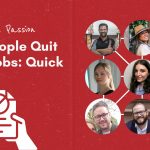This interview is with Jody Swain, Founder at Hire and Fire your Kids.
Jody Swain, Founder, Hire and Fire your Kids
Can you introduce yourself and share a bit about your background in the startup and business development world?
Absolutely! My name is Jody Swain, and I’m one of the founders of Hire & Fire Your Kids. I come from a background in business leadership, with 20+ years of experience across marketing, sales, operations, and consumer engagement. I’ve worked in both corporate environments and small business ventures, giving me a wide lens on how companies grow, pivot, and scale, but nothing prepared me quite like parenting did. You want negotiation skills? Try convincing a 9-year-old to empty the dishwasher. That was the real spark behind Hire & Fire Your Kids, bringing together real-world experience with real-world parenting drama.
What inspired you to become a founder, and how has your journey in the startup ecosystem evolved over time?
The inspiration came from personal experience. As a new step-parent, I constantly felt the pressure of balancing household responsibilities while trying to instill strong values and good behavior in our kids. Traditional chore charts and nagging weren’t cutting it. I thought, “What if parenting could be more like a game? Something kids would actually enjoy engaging with?” That seed grew into HFK. Since then, the journey’s been like parenting itself: messy, unpredictable, full of unexpected wins, and occasionally powered by snacks (lol). Hire & Fire Your Kids has gone from a paper game on the fridge to thousands of app users. We’ve pivoted our business model, rebuilt our tech, and learned that staying agile and mission-focused is critical in the startup world.
In your experience, what’s the most underrated skill that founders need to develop when building a successful startup?
I’d say it’s storytelling—the ability to tell your story in a way that resonates, whether to investors, users, or a team—that is vital. At HFK, we’re not just selling an app. We’re promoting a movement toward empowered parenting in this digital age and raising good, financially savvy kids. Framing that story in a compelling way has helped us open doors, attract collaborators, and raise interest from the right partners. The parallel is still there whether you’re pitching to investors or explaining to your kid why folding laundry is a life skill; it’s all about how you frame the message.
Can you share a pivotal moment in your entrepreneurial journey where you had to make a tough decision? How did you navigate that situation?
One defining moment came when we were deciding whether to focus purely on user acquisition or begin monetizing. We had traction and positive feedback after appearing on Dragons’ Den and getting four offers. Unfortunately, when we launched to stores as a paid app, the world was hit with the global pandemic. We had a decision to make: Do we chase growth and worry about money later given the times, or push on and continue to monetize? We ultimately chose to move the app to free and offer it to families in need. Homes around the world were learning to live with each other 24/7, and having a tool like HFK was extremely timely and beneficial for thousands of families during COVID. When the world returned to “normal,” we moved the app back to a paid download with unlimited features and unlimited family members, and currently have over 20,000 users.
How do you approach building and maintaining relationships in the business world, especially when it comes to partnerships and collaborations?
I treat business relationships like any good partnership: built on trust, shared values, and mutual benefit. Also, a little humor goes a long way. If you can bond over raising teenagers and scaling a business, you’re off to a great start. We’ve built some of our strongest relationships over coffee, LinkedIn, Zoom calls, and parenting horror stories, whether we’re collaborating on content, beta-testing, mentorship/advising, or co-promotion.
What’s your strategy for staying innovative and ahead of the curve in a rapidly changing business landscape?
We stay close to our users and remain open to co-creation. We’ve built features based on parent feedback, tested UI updates with kids, and even let families vote on what we develop next. Innovation doesn’t always mean shiny new tech; we made many changes to our navigation based on parents’ and kids’ feedback. That said, we do keep an eye on emerging trends like AI personalization, digital wallets and financial literacy for kids, as well as gamified learning. Our vision would be to enhance the tech to offer features similar to those of Duolingo, keeping users excited, coming back to the app daily, incorporating things like streaks, parent points, badges, daily motivational quotes, quizzes, social community, and stronger notifications.
Duolingo does an amazing job utilizing push notifications to engage their users and drive retention. They employ tactics such as personalized messages from mascots, promotional messages, and reminders to practice. They’ve created a compelling mobile app experience that we strive to achieve as we continue to grow. The key, though, is balancing what’s trending with what’s actually useful and grounded in your mission.
Can you describe a failure you’ve experienced in your startup journey and the most valuable lesson you learned from it?
One of our biggest lessons came from the launch of our digital gift card feature. We were so excited; kids could earn their payday allowance and redeem for digital gift cards right in the app. We invested thousands into building out that functionality, confident it would be a hit. But… crickets. The adoption was way lower than we expected.
It was a classic case of “if you build it, they will come,” except many didn’t. What we missed was validating whether families actually wanted that feature before we committed big resources to it. In hindsight, we should’ve run a small pilot or surveyed our users more deeply first.
It stung, not just financially but from a pride perspective too. But that misstep fundamentally changed how we operate. Now, we prototype everything, validate demand, and test ideas on a smaller scale before scaling up. That failure made us sharper, more humble, and way more obsessed with what real users actually want, not what we think they want.
How do you balance the need for rapid growth with building a sustainable business model? Any specific strategies you’ve found effective?
We are still a small team who have bootstrapped HFK. The Dragon I went with never showed me the money. We continue to grow, keeping to our mission and values. We want to build something families will use for years until their kids finally leave home, lol. Our model reflects that: an annual paid membership of $42 Canadian with unlimited features and players. We’ve also layered in our gift card rewards (which kids can redeem and is finally building in popularity) and strategic partnerships like accelerators, Chamber of Commerce, and businesses in line with our target market. We track metrics like retention, lifetime value, and cost per acquisition to make sure growth is healthy, not just fast.
Thanks for sharing your knowledge and expertise. Is there anything else you’d like to add?
I’d just say this: if you’re a founder solving a real problem, don’t let early setbacks shake your belief. The world needs practical, purpose-driven innovation, and more people building products that serve families and communities. At Hire & Fire Your Kids, we’re not just building an app. We’re empowering the next generation to grow up with confidence, accountability, and life skills that last a lifetime.






